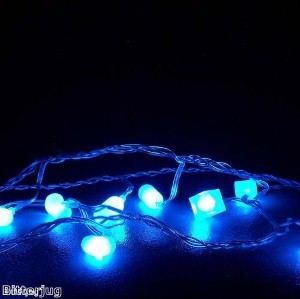US thinktank publishes study into the environmental impact of LED lighting
The much cited advantage of LED light bulbs is that they provide more lumens per watt than traditional bulbs - meaning that they provide more fractional units of illumination for each watt used to power them, and so use less energy to light the same space. That, paired with the more easily recyclable materials used in their construction, is what makes them so eco-friendly and energy saving.
However, with the technology being so new, less is known about the lifecycle performance of such bulbs: put simply, not enough of them have been used up and thrown away yet that experts know exactly how long an LED bulb is expected to run, and how best to dispose of them once they are burned out.
But exhaustive new research conducted by the US Department of Energy could shine a light on the subject.
"The US Department of Energy commissioned the report to help educate the lighting community about LEDs and lighting choices," said senior researcher Heather Dillon. "It aimed to consider all aspects of a lamp's life cycle, from the raw material used to make the LEDs [to] manufacturing, transport [and] use of the lamp by the customer."
The Life Cycle Assessment of Energy and Environmental Impacts of LED Lighting Products report is the result of long-term testing on LED lighting products, and made two main findings.
Firstly, both CFL and LED lighting are roughly equivalent in their energy use, taking a quarter of the energy needed to light traditional bulbs. Additionally, the report looked into the sustainability of such bulbs, and found both CFL and LED bulbs were far superior to their incandescent forefathers when measured against 15 strict metrics of environmental impact.
The research hopes to encourage more homes and businesses to install LED or CFL alternatives, to both save money and the impact on the environment.
It comes as this week one industry expert said the various considerations that homeowners need to undertake before they install solar panels are putting a number of buyers off.
"It is important for householders to do their research when it comes to purchasing the best product for their location, property and power demands in order to receive the best return on both their usage and any surplus to feed back to the grid," said a spokesperson for TheRenewableEnergyCentre.co.uk.

